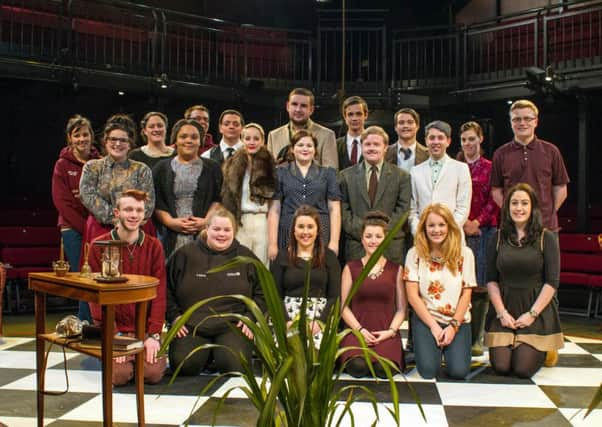And then there were fun


Agatha Christie’s famous 1939 detective novel And Then There Were None was adapted by the author as a play in 1943, and has scored a number of records over the years.
It’s her most published work, notching up more than 100 million books sales, thereby become one of the best-sellers of all time.
Advertisement
Hide AdAdvertisement
Hide AdChristie’s 66 detective novels were written over a 50-year timescale, and are thought to have outsold all other writers bar Shakespeare and The Bible.
So the final-year Drama students at the University of Cumbria had a real challenge tackling such a momentous work.
They did the play more than justice, and delivered a suspenseful evening with panache, pace and professionalism.
There was hardly a word, gesture, item of costume or stage furniture out of place; the overall production was much more than the sum of its parts; every possible box was ticked – and an extra one for that sparkle of exhilaration one doesn’t often get in the theatre.
Advertisement
Hide AdAdvertisement
Hide AdDirected by Imogen Turner, the cast of eleven made fine use of the Duke’s Round auditorium, a playing technique that demands special skills.
Diction was near-perfect (it’s not often I can say that) and blocking and movement finely placed.
Matthew Thomas co-ordinated a convincing, conducive period set, and Jessica Orr’s lighting and Martin Wigham’s sound also contributed well to the tense, nicely-paced dramatic atmosphere. Of the cast, Alisha Mckenzie’s fine portrayal of the dour Scottish frump Emily Brent, Thomas Cunningham’s scarily powerful neurotic Dr Armstrong and the magisterial David Champion as the judge, Sir Sir Lawrence Wargrave stood out.
That is not to denigrate the ensemble contributions from the whole cast, whose characters were equally distinctively delineated and nuanced.
I have seen many professional and other students shows that cannot hold even a flickering candle to an achievement such as this.
Michael Nunn